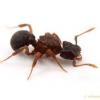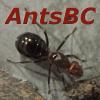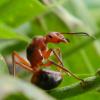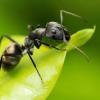Okay so the basic to know if a queen is fertile is to wait until they take off their wings.
But i was just wondering if there is another way to know if they are fertile. Because sometimes they just don't take off their wings and i think they're not fertile and i let them go, or if their wings are wet because they were found in a pool or something they don't take off their wings because their wings are a mess so that's why i'd like to know if there's some different way to know that.
Thanks. ![]()





















